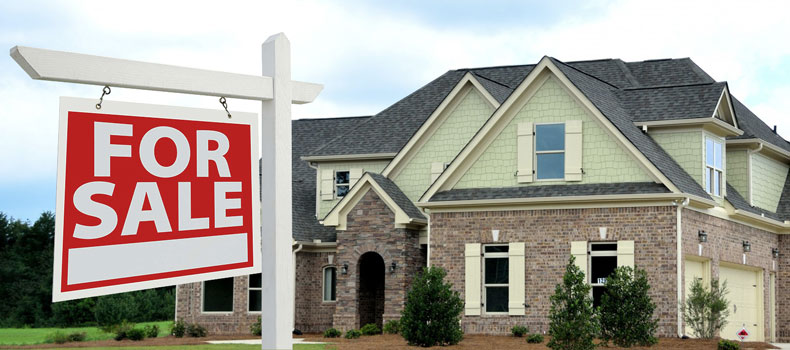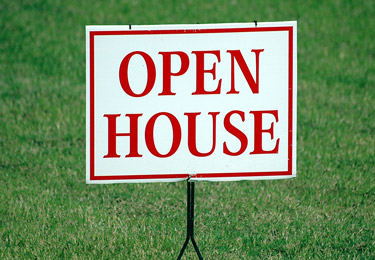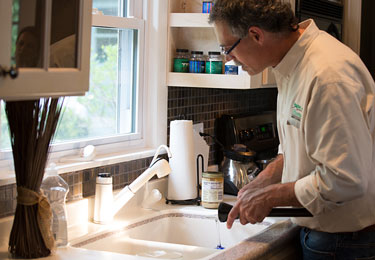Pre-Listing (Seller's) Home Inspections
Make the process of selling your home faster, less stressful, and more rewarding with a pre-listing home inspection.
Make the process of selling your home faster, less stressful, and more rewarding with a pre-listing home inspection.

While home inspections are typically used by home buyers, you — as the seller — also have a lot riding on this transaction. Renegotiations after an inspection may result in you needing to make repairs, a reduction in the price, or if more serious issues are discovered, revocation of the offer from the buyer.
Put yourself in a stronger position for negotiations, and maximize your sale price, by having your home inspected before listing it on the market. If you choose to make repairs before listing, you'll have plenty of time. Fix issues at your leisure, with no looming deadlines.
Go into negotiations with more control and ensure a quicker, smoother transaction. Findings from a buyer's inspection can catch you off guard, just as it can the buyer. If that happens, then you'll be under pressure to correct the problem quickly or lower the price. If a major problem is discovered, or negotiations break down, then the transaction is in jeopardy. And when a deal falls through, no one wins.

Many strangers will be entering your home during the selling process, some more respectful than others. You can rest assured that we respect your time and property as though it were our own. We strive to always be on time and take every precaution to avoid causing any damage to your property. By the time we are finished, it should be as though we were never even there.

It's your home. You probably know it inside and out. However, you might underestimate or not even notice some issues. A home inspection is still incredibly helpful because a home inspector is trained to notice things that most people won't. Your home inspector also has a lot of experience to draw on when assessing any problems they encounter.
Although normally used for home buyers, pre-listing inspections are becoming more common.
As the seller, there a few things you can do to prepare for the inspection. Being prepared will help the inspection go smoothly and increase your home's appeal to potential buyers.
This may be stating the obvious, but it's imperative that your house is as clean as possible. Not only does this increase your home's appeal, but it also helps the inspector by making it easier to move around and access various areas of interest.
Utilities need to be connected so the inspector can test things like water flow, electrical outlets, water heaters, furnace, air conditioning, and so on. Without the utilities connected, the home inspector will have no choice but to either reschedule or suggest inspection by a specialist.
Appliances that are not connected to water, power, oil, or gas cannot be turned on by the home inspector. All appliances should be working properly, and abandoned appliances should be removed.
In the Winter, try to provide a path around your house. In the Summer, clear away any overgrowth or dead branches that come into contact with the home.
This may seem silly, but make sure the house number is visible from the street. People are going to need to check out the house, so you'll want to make sure they can find it without any trouble.
Check faucets and showers, looking for visible leaks as well as testing water pressure. Identify the types of pipes used, if visible. Identify the location of the main water shutoff valve.
Identify the type of wiring, test all outlets and make sure there are GFCIs installed where needed to protect from electrical shock. Inspect the electrical panel for safety issues and fire hazards.
Determine the age of the furnace and air conditioner, whether or not they function properly, and possibly recommend repairs or maintenance.
Determine the age of the water heater and check for proper installation. We can also determine the condition and possibly give an estimated remaining life span of the unit.
Check for proper ventilation. A poorly ventilated dryer exhaust can be a serious fire hazard.
Test smoke detectors and ensure that the garage wall, if present, has the proper fire rating and is undamaged. Also check the fireplace for proper installation and maintenance.
Check for visible leaks, properly secured toilets, proper ventilation to prevent moisture related issues, and more.
If possible, check for structural damage and proper ventilation. Also check insulation and ensure that nothing is ventilated directly into the attic, such as the bathroom.
Check for damaged or missing siding, cracks, and excessive soil contact which can be an invitation for pests.
Check for possible foundation failure, indicated by cracks or settling.
Check to ensure that the ground slopes away from the house, which prevents water from entering the house or causing damage to the foundation.
If accessible and visible, check for roof damage or poor installation that may allow for water penetration as well as checking the condition of the gutters.
Test the garage door for proper functionality, check for proper ventilation to prevent carbon monoxide poisoning, and check for risks of explosion from ignition sources too close to the floor.
GCJ Home Inspection provides pre-listing home inspections in New York City including The Bronx, Brooklyn, Manhattan, Queens, Staten Island, and Nassua County. Give us a call at (917) 626-2554 or send us an email.